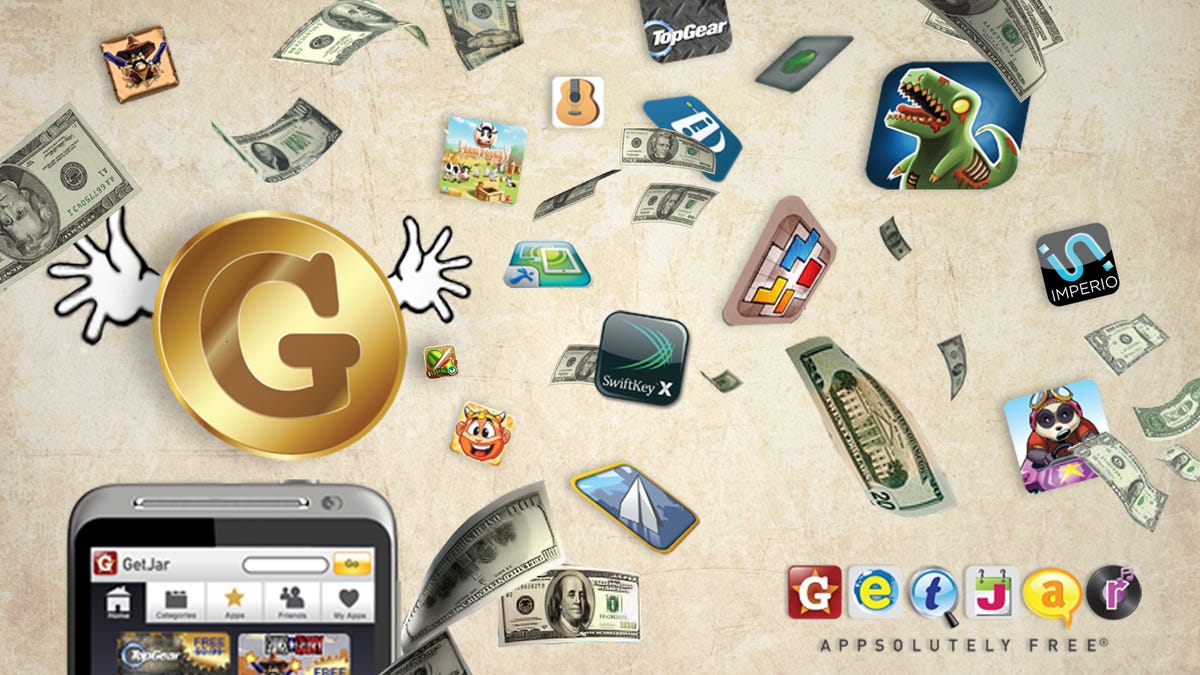How Android isn't really that open
GetJar CEO Iljas Laur lays out why Google exerts more control than you think, and what it means for developers.

GetJar CEO Iljas Laurs doesn't mince words when he says Android isn't as open a platform as Google would like you to think.
"To me, closed is anything that doesn't have total freedom," Laurs told me. "By that definition, Android is already closed."
Laurs has some bold predictions for 2012. He believes Google will start to exert a tighter control over Android, restricting what kinds of apps are developed and what technologies they can use.
"You can't blame a company for getting as much as power as it can get," he said. "If I were Google, it's what I would do."
He calls the 30 percent cut of the revenue generated from apps paid out to Google a tax on developers. The cut is supposed to account for Google hosting the app, running it on the Android Marketplace, and handling the transaction. While that may be great for some smaller developers, he said larger players may not necessarily need all of those services, and could manage the apps on their own for a lower price.
Laurs said the 30 percent cut is an industry standard only because Apple, which runs a closed system, dictates it.
Laurs isn't without his own biases. His company, GetJar, is an independent app store that in many ways competes with Android's own marketplace. The company has worked hard just to ensure Android phones are able to download apps from sources outside of Android's store, something a few of the wireless carriers have played along with.
But GetJar has seen significant traffic, having crossed 2 billion app downloads in August, and 100 million downloads a month.
Google, for its part, has always maintained that Android is an open system, and points to the number of varied vendors and developers that use the platform. The company, to its credit, has been able to draw a diverse mix of partners.
But Google's reputation for openness isn't without its question marks. Over the past year, the company has been battling allegations from Skyhook, a private provider of services that help phones locate their position, that Google muscled it out of a partnership with Motorola. Google has denied any wrongdoing, and claimed Skyhook didn't meet Android's technical requirements.
On Wednesday, visual voicemail company YouMail complained that its app was completely pulled from Android Market because of a request from T-Mobile. YouMail later found out a version of its app was in fact unnecessarily hurting T-Mobile's network, and after some tweaking, said it was coming back. While admittedly in the wrong, YouMail still took exception to Google pulling the app completely when only one carrier made the request.
The process may be gradual, but Laurs sees Google exerting more control. The acquisition of Motorola is another step, he said, adding the company could always threaten to give Motorola the latest version of Android to maintain control of its partners. Google has said it would treat Motorola like any other vendor partner.
Android's dominance is poised to continue. Laurs said by next year, it should surpass Apple as the destination of choice for developers, adding that he expects a number of Android-exclusive apps to pop up.
So what can a developer do? If Google continues on the path that Laurs laid out, then developers will start looking for ways to hedge against any potential control.
What many developers are already doing is embracing HTML5. The standard is quickly gaining acceptance among developers, and there are an increasing number of devices able to run HTML5.
Pretty soon, Laurs said, HTML5 will be able to take advantage of the capabilities of a device, something only native apps can currently do.
"Using HTML5 is less risky than placing my eggs in a native basket," he said.
Secondly, and perhaps to his own benefit, Laurs called for more developers to support independent app stores. Beyond GetJar, Amazon has made strides in building its own application store, which will only get more popular with the Kindle Fire continuing to sell well. He added other carriers and vendors may look into bulking up their independent app stores.
Laurs said he sees a further "forking" of Android similar to how Amazon stripped out the Android look and feel of the operating system from its Kindle Fire. Other major technology companies or vendors may look at their own version of Android if Google pushes for a tighter rein. AllThiingsD has reported that Facebook is considering forking Android to its own use.
Optimally, he said three or four versions of Android would be ideal for developers, allowing for competition between platforms and more options for distribution. Too few options, and there is the risk of more control, but too many can create fragmentation. Developers would be smart to try to support as many of these variants as possible, he said.
Lastly, Laurs said developers should start to take a more serious look at Microsoft's Windows Phone platform as another alternative.
"I think developers are hedging their distribution effort over the three platforms," he said. "It's a safe strategy."
And who knows, maybe Hewlett-Packard's decision to turn WebOS into an open-source platform may give developers the option they've always wanted.
Probably not.
Addendum For those of you still interested in making an app with Conduit, here's the latest on my app. After resubmitting my app to Conduit and getting approval, I went back to the site's main dashboard multiple times. Only after several attempts did a message pop up with an offer by Conduit to submit my app for me. I agreed, and the process is in the works. I'll keep posting updates on the process.
In the meantime, if you get an app successfully posted through Conduit, let me know. It'll make for good fodder for a future Inside Apps column.

